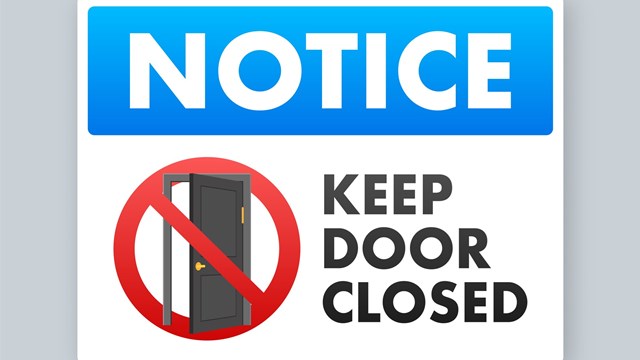What's a "problem employee?" The guy who corners you at your desk and tells endless stories about his weekend in Maine? The grocery sacker who always puts the canned goods on top of the bread? Or is it the association staff member with a criminal history nobody knows about, carrying on fraudulent ordering practices and posing a potential threat to the safety and security of the community?
People working in condo and co-op communities are trusted with equipment, money and the safety and possessions of residents, so it's vital that anyone hired to work for your association —as a groundskeeper, superintendent, or maintenance person—is honest, trustworthy, dependable, and properly trained.
A background check can let you know if an applicant has a criminal history, has financial difficulties or is unreliable. Not every bit of information that can be dug up on a person may be relevant to the position he or she is applying for, but a thorough, professional background check can provide you with information that allows you to make your hiring choices with more confidence.
Crime Stories
The main component of a background check is a person's criminal history—and checking a criminal history involves a few steps. State and county records are pretty standard, but beyond that, certain things might or might not be checked based on the position a person is applying for.
"A criminal history search is always run on an applicant," says John Carranco of Background Information Services Inc., a national screening firm based in Boulder, Colorado. "For certain positions—maintenance for example—the person's going to be driving vehicles; a motor vehicle criminal history will be a priority. If someone is working on the financial end, we'll run credit checks. Companies indicate what type of check they want to do based on the position."
One choice the association's hiring agent has to make is how far back into a candidate's history to excavate. You can go back just a year, or an entire lifetime if you choose. The farther back you go, however, the more the background check will cost. Carranco says seven years is the average length of a background check, but adds that employers can have different reasons for requesting longer or shorter checks.
"It depends on the association's criteria," he says. "It depends on whether they want to disqualify people based on felonies or misdemeanors. They can go three years back, five years back, seven years. If they choose three years, they're not worrying about what the person did before that. So the person might have done all kinds of things, but if they've been clean over the last three years, they fit the association's criteria."
Jack Jackson, president of Clark & Ramson, a screening company based in Somerville, recommends that associations specifically ask for a complete criminal history on an application.
"A lot of application forms ask for a criminal history over seven years," Jackson says. "But a lot of people [with questionable histories] do get on the straight and narrow, so if you want to know if the person has any history, I would recommend you remove the seven-year mention from the application process. Seven years just sort of became the standard, but there's no law saying you can't ask for more."
Check them Out
Resumes and job applications are obviously the biggest components in the hiring process. But they can be tricky in that a person can essentially write whatever he or she wants. In light of that, some associations investigate incoming resumes to verify their contents.
"In cases where there's a resume involved, we do attempt to obtain as much information as we can to verify the information," Jackson says. "That involves looking at old school records, military forms, and so forth."
Lies of omission can make resumes unreliable. For that reason, associations sometimes opt for a Social Security number check.
"Let's say you fill out an application," Carranco says. "You might leave out two states you lived in because you committed assault in those states. If we do a Social Security number trace, we'll pick up those states and search them."
Knowing everywhere a candidate has lived can be important for other reasons. There are people who don't stay at jobs very long and who move a lot as a result. These people may decide to leave some stops off their resume or application to make it look more professional.
"You want to make sure they're not moving around from place to place," Jackson says. "That could indicate they're running away from something, or that they're not very reliable."
In some instances, these checks actually can be beneficial to applicants if the applicant actually does have a criminal history, and is honest about it on an application. The association may very well still consider him or her for the job.
"If the applicant lists [past criminal history] on an application, you can ask about it," Carranco says. "So when we do the background check and it doesn't match, there's a problem. The association might disqualify a candidate then. But if the candidate tells them [about their criminal history] and it does match up with the check, it gives the candidate credibility."
Background checks aren't limited to new or prospective employees. There could be instances where you want a current employee investigated.
"When existing employees are being looked at, it's because there's suspicion of something," Jackson says. If you do feel the need to investigate a current employee, Jackson recommends doing so with all association employees in order to avoid potential legal difficulties. "That way, there's no discrimination suits or unfair treatment or labor disputes being brought forth," he says.
Every check is different, but the average check should take about one to three days. Cost will vary depending on the company you use and they type of check you request.
Self Checkout?
Since so much of the information gathered in a background check is public information, and since so much of that information available on the Internet, it could be tempting for a manager or board member to conduct a background check on his own. This plan can backfire for a number of reasons, not the least of which is that it can be difficult to confirm that information you glean from a Google search is accurate.
"I've found that a lot of associations want to cut corners and lower cost, so they try to do it themselves," Jackson says. "Something that will increase their liability is if they terminate someone because of something found in their credit history and the person was not completely aware that their background was being checked."
Jackson added that even though all of the information gathered from a background check is public information, problems can still arise if employees aren't informed that a check is being done. Therefore, he says it's vitally important that people know they're being checked.
"We have forms that make the employee aware that a background check will be done. What I've found is that a person who doesn't want to sign the form usually has something to hide. But the association is protected if the employee says, 'I never gave you permission to check my information.'"
People trying to handle background checks themselves can also run into problems if they don't conduct themselves in the proper manner, if they call sources too many times because they don't know what questions to ask, or spend a lot of time seeking information a professional can get more quickly.
"Individuals go on-line and try to gather as much information as they can," Jackson says. "They call friends [of the applicant] and it can develop into borderline harassment. Can you do it on your own? Yes, but you have to be careful. If you don't know what to search, it can take time. Professionals have databases and resources to get information from wherever the person may have lived."
And it's that experience, says Jackson, that can make all the difference when an association or managing agent is going through the hiring process and trying to make the best staffing decisions for the community. The bottom line is that along with common sense and planning, managers and boards can make use of professional resources to staff their communities with people who are up to the job.
Anthony Stoeckert is a freelance writer and regular contributor to The New Jersey Cooperator.







Leave a Comment